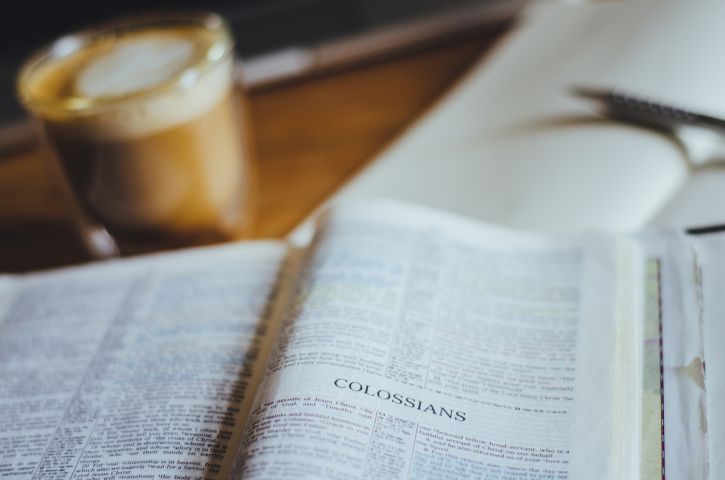Were Holy Days the Heresy at Colosse?
New Testament passages are often used to promote something very different from the essence intended by the author. Consider Colossians 2:16-17.

Colossians 2 contains Paul’s response to the controversy at Colosse.
Most today recognize that the letter was sent to expose what was soon to be known as gnosticism, which was creeping into first-century Christianity. One form of gnosticism was libertine in nature and another, ascetic. Mainstream Christianity today also claims Paul was telling the Colossians that the holy days and food laws of the Old Testament were out-of-date and unnecessary. But is that accurate based on the context?
Biblical background
Reading between the lines, we can see that the ascetic gnostics themselves were actually keeping the biblical holy days but adding their own stringent tenets to the practice. They wanted to spread their doctrines within the Church of God.
The apostle Paul put pen to paper to address their improper perspective:
“Beware lest anyone cheat you through philosophy and empty deceit, according to the tradition of men, according to the basic principles of the world, and not according to Christ. For in Him dwells all the fullness of the Godhead bodily; and you are complete in Him, who is the head of all principality and power” (Colossians 2:8-10).
In the eyes of the apostle Paul, those gnostic beliefs were of no value to the Christian. The Colossians were being cheated through humanly devised deception. Gnosticism taught worthless and meaningless doctrines that did not originate with God.
The ascetic gnostics of New Testament times didn’t think that Christians should celebrate the biblical holy days in a certain way: they were judging people for being too festive on the God-ordained holy days.
Paul instructed: “Let no one judge you in food or in drink, or regarding a festival or a new moon or sabbaths, which are a shadow of things to come, but the substance is of Christ. Let no one cheat you of your reward, taking delight in false humility and worship of angels [part of gnostic worship], intruding into those things which he has not seen, vainly puffed up by his fleshly mind” (Colossians 2:16-18).
Paul gives further information on ascetic ideas in verses 20-23.
Paul certainly was dealing with heretical doctrine, but that heresy—and Paul’s response—was not about changing holy days and food laws.
What did Paul mean by “food and drink”?
Concerning the words food and drink (in verse 16): If Paul were saying here that God-given food laws were obsolete, then he had an odd way of saying it. What Paul clearly is saying is that the Colossians were not to allow themselves to be judged by other people (the gnostics) about how they were festively eating and drinking. The heretical gnostics were in no way qualified to make such judgments against God’s people.
Let’s study those words, food and drink. These three words alone prove that Paul was not talking about the food laws.
The words translated from Greek as food and drink (New King James Version) or meat and drink (King James Version) mean “eating and drinking.” It is the act or method of eating and drinking—not what is eaten or drunk. This is the best rendering of the Greek words brosis and posis. Nowhere in this section is there any reference of any kind to animal flesh as food. The original Greek in verse 16 says nothing about what a person can or cannot eat, which is what the biblical food laws are about.
The apostates were wrongly preaching that an increased closeness to God is only possible through austere or harsh treatment of the self. So they considered pleasurable festivities on God-ordained feast days to be wrong. In their false humility, they thought they could do better than God. They were self-righteously unfestive when they should have been joyful on God’s feasts days.
Those words eating and drinking tell us that the gnostics were not speaking out against the food laws, nor were they speaking against the keeping of the holy days. There is every reason to believe these critics were actually keeping them with their own set of beliefs.
They were criticizing the practice of others and wanted to put their own stamp on festival-keeping. They wanted things done their way.
They wanted to deprive themselves and everyone else of the joyful pleasures of eating and drinking on the annual festivals. In their eyes, there was just too much enjoyment going on.
Ascetic heresy
Paul certainly was dealing with heretical doctrine, but that heresy—and Paul’s response—was not about changing holy days and food laws. God-given annual Sabbaths, weekly Sabbaths or food laws were not the issue. The stern heretics did not want to see people enjoying themselves by being festive on the annual festivals, which they themselves were still keeping.
Paul was essentially saying, “Do not let anyone—especially ascetic heretics—judge you for being festive on God’s holy days.” He was being critical of the vain imaginations of men who thought they could improve on true Christianity.
Read more about this passage in “Colossians 2:16-17: Did Paul Warn Christians Against Keeping God’s Law?” and “Colossians 2:16-17: Does It Abolish the Law of Clean and Unclean Meats?”
Date Posted: April 13, 2016

